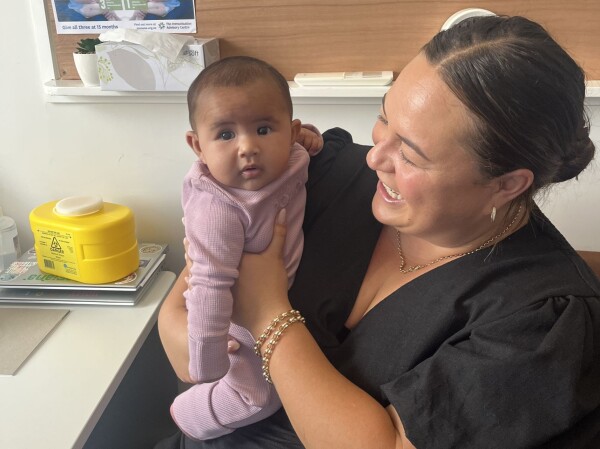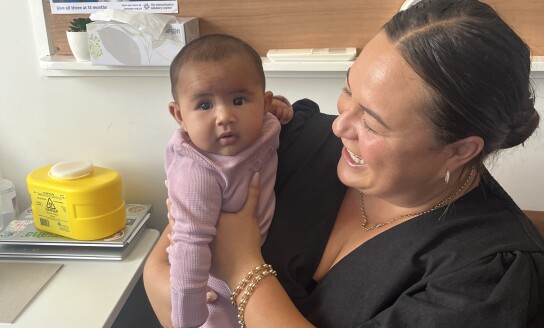24 April 2025
By Fiona Kingsford
Chief Executive, Whānau Āwhina Plunket
According to the World Health Organisation, more children now live to see their first birthday and beyond than at any other time in human history. And being vaccinated accounts for 40% of this improvement in infant survival over the past 50 years.
Despite this, childhood immunisation rates continue to decline worldwide, including in Aotearoa New Zealand. Whānau Āwhina Plunket supports three-quarters of all new babies across the country, including nearly six out of 10 Māori pēpi. Our frontline mahi means we see first-hand the high toll of preventable illnesses such as whooping cough and measles take on the youngest members of our communities.
Our focus is supporting pēpi and tamariki to have the best possible start in life – they are at the heart of everything we do. That’s why we share WHO’S concern at declining immunisation rates and we strongly support our Government’s target to have 95 percent of tamariki fully immunised at two years old by 2030.
For generations, Whānau Āwhina Plunket nurses, kaiāwhina and community Karitāne health workers have been supporting whānau on all things child-related, including providing immunisation education, promotion and referrals. We are privileged to be welcomed into many thousands of Kiwi homes as trusted health professionals.
We were excited to be funded by government in late 2024 for a pilot in partnership with Health New Zealand to upskill our nurses so we can, for the first time in our history, offer immunisations around the country as part of our healthcare kete.

We set an ambitious goal: to train 100 of our nurses to become authorised vaccinators and to offer our immunisation services in areas where they are most needed and how they are most needed – including in-clinic, at home or as part of community events.
All the pilot sites have been identified as areas where immunisation rates are lowest, combined with areas where Plunket has the capacity to pilot the new service. We work closely with other providers to ensure our service is tailored to the needs of each community. We have now established immunisation services at six of our nationwide clinics as part of this pilot – Whangārei, Kirikiriroa Hamilton (two sites), Taumarunui, Kaikohe and Whanganui, with around 20 planned across the country. The pilot runs until June 2026 and we are gathering feedback to ensure each community’s needs are met.
To lift immunisation rates in Aotearoa New Zealand, we believe we need to take the approach of every door is the right door for whānau to access this. For many, we are that trusted face and trusted place for this to happen. For some, we may not be the preferred provider. But by becoming part of the system and supporting access we are playing an important role in contributing to immunisation outcomes.
We continue to work alongside colleagues and partners including Hauora Māori providers, Pacific providers, pharmacists and general practice to be another part of the health system’s efforts to improve immunisation rates and protect whānau against vaccine preventable diseases.
Offering another option for whānau is important – as one client at our Whangārei clinic said: “Thank you for your clinic. I’m not an anxious person but the 1st and 2nd vaccine had always made me nervous. Whereas today I actually felt really good and comfortable.”
As the World Health Organisation says, lifting immunisation rates is a global issue. But it is also about reaching one precious tamariki at a time.
